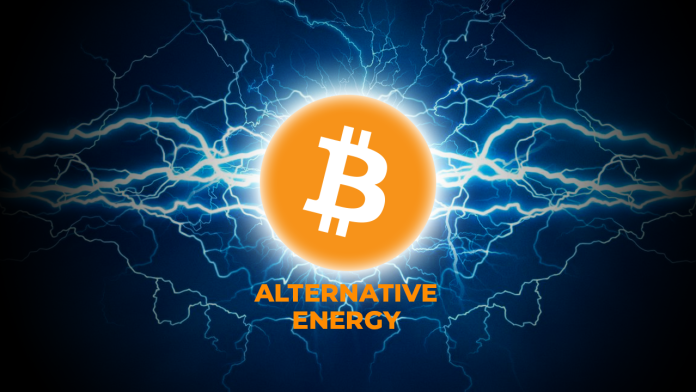tl;dr Summary: Bitcoin mining has been in the cross-hairs for using as much energy as a small country. This article presents facts about the energy consumption of Bitcoin mining, steps taken by companies to get their hands on clean and cheap energy, and new alternative sources of energy.
Bitcoin mining has been a subject of criticism1,2,3 for its usage of fossil fuel energy and its indirect impact on the environment since inception.
The arguments made by the critics can be grouped into sensationalism, the need for energy cleanliness, a change to the Proof of Stake (PoS) consensus model, and the necessity of bitcoin to exist as an open monetary system.
I think we can keep aside sensationalism and the need for Bitcoin to exist. For those who suggest moving to PoS, this article tells us why Bitcoin must stay on Proof of Work.
Here, we will look at the energy consumption of Bitcoin miners to answer the question of cleanliness and also touch on newer alternatives.
Bitcoin mining energy consumption
The obvious question that comes to mind is how much energy is consumed by Bitcoin mining?
The Coinshares research estimates that the Bitcoin network drew a total of 89 TWh (terawatt-hour) in 2021, which is 0.05% of the total world power consumption, estimated to be 162,194 TWh (2019 data).
According to CBECI (Cambridge Bitcoin Electricity Consumption Index), a not-for-profit research institute, the Bitcoin network consumes 0.28% of the global energy consumption.
Also, according to the latest (July 2021) report by the Bitcoin Mining Council (BMC), a voluntary and open forum for Bitcoin miners, the Bitcoin network uses 0.117% of the total global energy consumption.
Please note the BMC has used the CBECI June 29, 2021 data for this visualization.
But why is there such a difference in the numbers (Coinshares’ 89 TWh and CBECI’s 189 TWh)?
There are four main contributors to this difference.
- The model used for calculations and the assumptions made to arrive at these values.
- The inability to make an apple-to-apple comparison between Bitcoin and any other activity.
- The quality of data available for calculations.
- And a subjective analysis of the topic.
As consumers of this data, we should keep these factors in mind and understand that the studies only provide a version of the best guess estimate.
Given the data above, it can be said that Bitcoin Energy consumption can range anywhere from 0.05% to 0.28% of the global energy production which is more than what Finland consumes yearly.
Renewable energy consumption by Bitcoin
The second important question to look at would be the amount of renewable energy used by the Bitcoin network.
According to BMC, global Bitcoin mining has the highest sustainable energy mix at 56% in Q2 of 2021 and it grew from 36.8% in Q1 2021.
And according to the Coinshares’ report, as of December 2021, 41% comes from renewable sources.
graph created using data provided in this Coinshares report
Others include small amounts of oil, solar, and other renewables.
Based on these current estimates, the sustainable energy mix for Bitcoin mining ranges from 41% to 56%, which seems high and on an uptrend. Why is this so?
The reason for this lies in the fundamentals of Bitcoin mining. Bitcoin mining works by adding a transaction record to a public ledger for a reward of a newly minted coin and transaction fees but with time, the rewards get scarce by design.
“Due to the diminishing block subsidy, growing global hash rate competition for the remaining transaction fees, and eventual decline of the current massive profit arbitrage opportunity to mine new blocks, miners over time will be forced towards ever cheaper energy. “ according to this report here. And this is the reason why miners race to look for inexpensive and clean sources of energy.
Here are some examples:
- Mining companies utilize abundant energy from the grid (both renewable and non-renewable) that would otherwise be grounded. We saw this in China and see this in Texas.
- Sign up for a Zero carbon Bitcoin mining joint venture like this.
- Intending to become “valuable partners to new renewable projects.”
- Invest in a solar-powered mining facility.
- Declaring to run an entirely carbon-neutral Bitcoin mining operation
New ideas for cheap energy sources
Apart from the examples given above, mining companies are also looking at novel energy sources to tap. One such space is called ‘flared gas mitigation’ which uses waste methane gas as its energy source.
This gas is a natural byproduct of oil extraction, especially during initial production, and gas companies do not find it economical to transport it to refineries (methane cannot be released into the air as it is a greenhouse gas).
Oil major ConocoPhilips is already running a pilot project which could lead to Flared gas mitigation becoming a new alternative source of energy for miners.
Partnering with Bitcoin mining companies presents a win-win situation for both parties. The oil companies reduce their carbon emissions, and the miners get cheap and clean energy.
Final thoughts
Here are the facts. The Bitcoin mining network consumes between 0.05% to 0.28% of the global energy production. 41% to 56% of which comes from a mix of sustainable and clean energy sources.
Critics say that this amount of energy can power a small country and the large percentage of renewable energy only means less availability for electric cars.
The mining community has always responded to these allegations by claiming that they only use the abundant energy available in the grid that would otherwise go to waste.
No matter which side you choose, it is certain that the energy demand will increase. With the industry always on the lookout for clean and cheap energy, this opens up new possibilities.
2.https://digiconomist.net/bitcoin-energy-consumption/
3 https://www.ft.com/content/1aecb2db-8f61-427c-a413-3b929291c8ac






